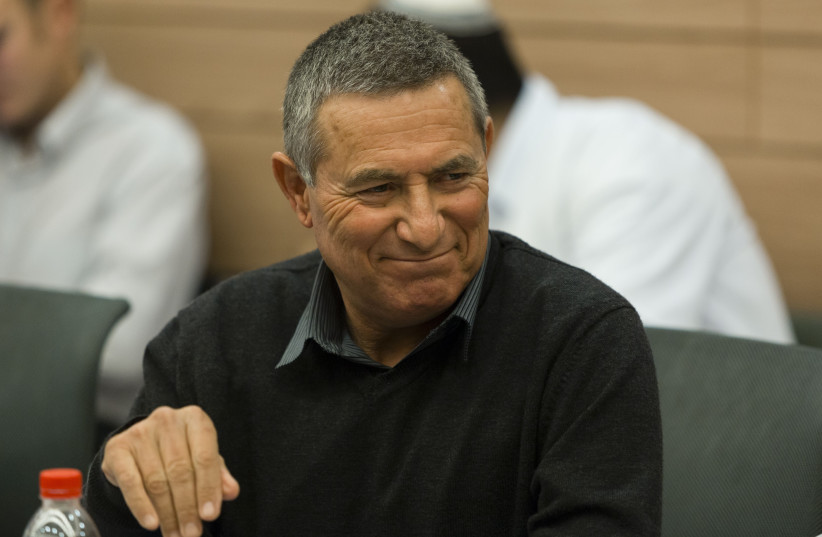Once upon a time, there was a genuine Israeli hero – twentieth–century–style – named Doron Almog. He fought bravely in the War of Attrition, the Yom Kippur War and the first Lebanon War. The first guy on the tarmac during the Entebbe Airport hostage rescue in 1976, Almog eventually became a Major–General.
This major mensch also became a genuine Israeli hero – twenty–first–century–style – by founding a rehabilitation village for people with special needs, honoring his late son Eran. Throughout his storied career, our hero cleverly avoided what sometimes feels like the swamp of Israel–America relations.
Then one day, when the Jewish people reached an impasse in seeking a leader and a new czar was trying to throw the Jewish Agency out of Russia, the elders of Zion chose him to chair the Jewish Agency for Israel, the Jewish world’s largest NGO.
Suddenly, this man, whose character had been tested in battle and someone who overcame personal tragedy, would have to navigate the unfamiliar, sometimes–haunted forest of Israel–Diaspora relations. He took on this new task just three weeks ago.
Navigating Israel-Diaspora relations
Perhaps the loudest, shrillest, goblins would be the un–Jews. From their posh academic and rabbinic perches, these Jewish misleaders hope to undo Jewish core post–1948 consensus: that Jews are one people, not just co–religionists, intertwined with one another and with the fate of our Jewish–democratic homeland, Israel. Drawing disproportionate attention in the American and Jewish media, these un–Jews dominate too much of the conversation. Meanwhile, their bile enables the world’s Bash–Israel–Firsters and anti–Israel terrorists.

Major–General Almog would have to show major restraint in not being reactive and letting them set the agenda. Yet, he would have to reach out to those sincere, universally–minded, social–justice–oriented Jews, who remain open to hearing complicated truths about Israel and its quest for justice as embodied by Almog himself.
Across the spectrum are the equally aggressive and attention–grabbing Uber–Jews. These Jews confuse by overdoing their ardent Jewish nationalism and/or intense Jewish piety. Uber–Jews include those ultra–Orthodox fanatics who somehow skip the parts in the Torah emphasizing Jewish peoplehood, Jewish unity, tolerance and nuance. Uber–Jews also include those ultra–right–wing bigots who cannot reconcile their love of Jews with Judaism’s traditional love of the stranger, too.
Major–General Almog would also have to show major discipline in allying with proud patriotic Jews, without indulging the xenophobes. In handling both extremes, he would have to acknowledge that good intentions spawn most bad ideas; it’s just that fanatics are all accelerator, no brakes.
The Oy Vey Jews also darken the forest. These super–stressed Jews jump from worry to worry, from fury to fury and from indignation to indignation. It’s not a good day for them if the sun shines and we celebrate how lucky we are to be alive today with a democratic Jewish state and a mostly–united Jewish people. Despite good intentions, their anger, fear and frustration often foul the forest.
FOR EXAMPLE, consider those activists infuriated, as I am, that five years ago, former prime minister Benjamin Netanyahu scotched the Kotel compromise that would have validated liberal Jews by carving out a prayer space for them at the Jews’ holiest site. Nevertheless, to make that one issue define Israel–Diaspora relations is misleading and self–defeating. How do these leaders think that they can convince a next generation to look up from their smart–phones and care about Jews and Judaism when these leaders themselves are so soured over an ultimately symbolic issue which, while important, still hasn’t stopped most Jews from being dazzled by the Kotel’s historic, spiritual and romantic magic?
Fortunately, beyond this confusing crossfire, legions of knights wanted to join our hero in saving the silenced majority. Most numerous are the Peoplehood People. Most Jews appreciate how lucky they are to participate in this 3,500–year–old conversation about meaning. They feel proud to belong to this extended Jewish family, which lets you know that no matter where you are, you’re never alone.
Most of these Peoplehood People are Israel junkies. These Zionists understand how central Israel is to modern Jewish life. Moreover, owing to the spike in anti–Zionist Jew–hatred, many Jews are rallying around the flag. They refuse to be bullied for loving their homeland.
Finally, our hero must realize that American Jewry is changing. The old narrative characterized all American Jews as boat people, descended from the two million Eastern European Jews who crossed the ocean from 1880–1920. Increasingly, the American Jews who are most outraged by Zionophobia are children of Israelis or of refugees from Russia, South Africa and South America. Their radar for detecting enemies has not been neutralized by three generations of American warmth.
This talented visionary will have many opportunities to do good while helping others do good, too. In heading this powerful Jewish peoplehood platform, Almog must administer this bureaucratic behemoth efficiently, while continuing the Natan Sharansky–Isaac Herzog re–orientation, balancing Jewish identity–building, nation–building and immigrant absorption.
Almog must become the Jewish people’s storyteller–in–chief. This year’s arc of Zionist triumphs – the Zionist Congress’s 125th, and the 75th of the UN’s recognition of a Jewish state followed by Israel’s founding – can help the next generation understand where we come from, who we are and who we can be by working together.
May Almog be embraced by Jews willing to listen to him generously not censoriously and by Jews who understand that unity does not require uniformity. And may he demonstrate that being a part of this people, contributing to Israel, is not only about helping others but helping each of us find mission, meaning, community and identity.
If that happens, yet another Zionist fairy tale will come true.
Gil Troy is a Distinguished Scholar of North American History at McGill University, and the author of nine books on American history and four books on Zionism. He is the editor of the new three–volume set, Theodor Herzl: Zionist Writings, the inaugural publication of The Library of the Jewish People (www.theljp.org).
